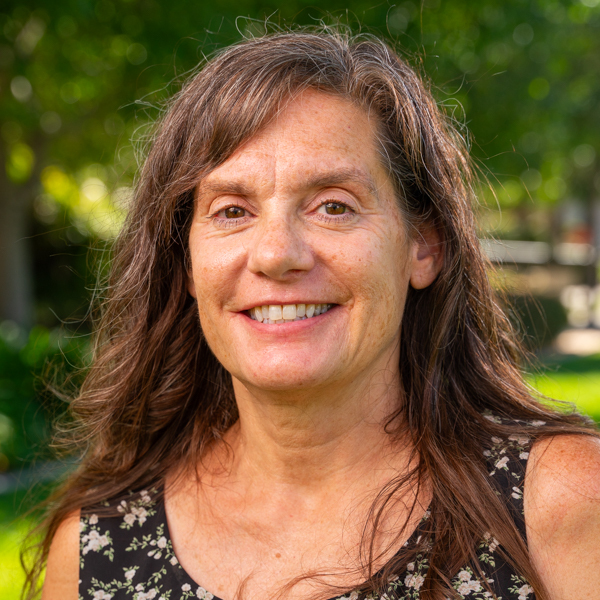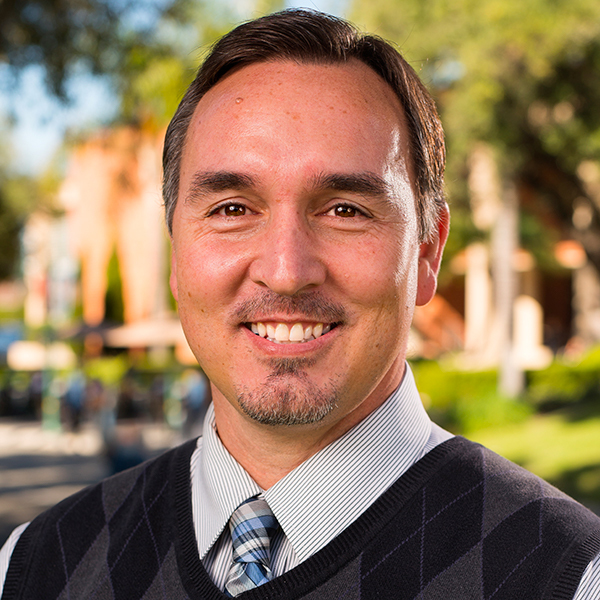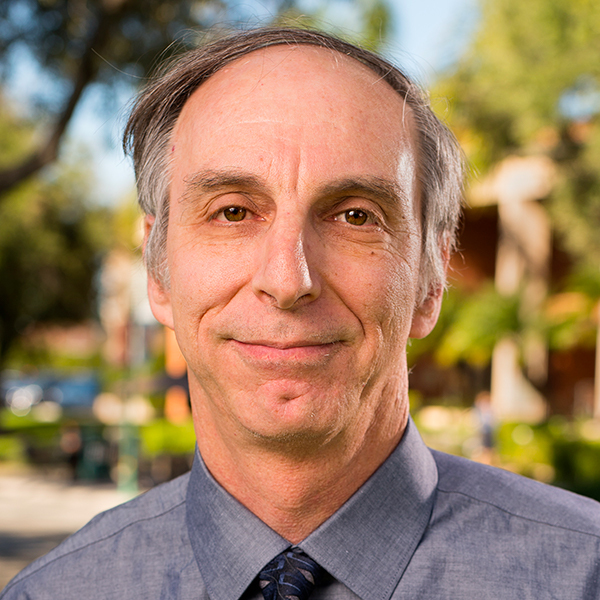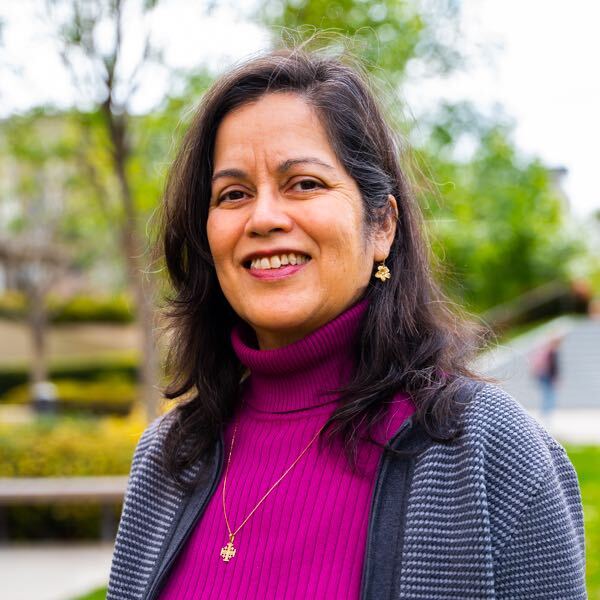Bilingual Authorization in Spanish

Overview
Biola’s bilingual authorization program is a fully online three-course sequence that prepares current teacher candidates and credential holders to obtain certification to teach in a variety of Spanish bilingual settings in both elementary and secondary classrooms. Non-credentialed educators can receive an institution-sponsored certificate.
The bilingual authorization prepares you to plan, develop, implement and assess standards-aligned content instruction in both the primary and target languages. This is done through a focused study of the philosophical, theoretical, legal and empirical foundations for bilingual education as well as bilingual instructional models, instructional strategies and use of evaluation methods.
The courses required for this program are included in the concentration requirements in the following degree programs or may be taken as electives in other degree programs (please contact your School of Education academic advisor or admissions counselor for questions):
Biola Undergraduate Students
B.A. in Liberal Studies, Elementary Education (Spanish Concentration)
B.A. in Liberal Studies, Multidisciplinary (Spanish Concentration)
Biola Graduate Students
Online M.A. in P-12 Multilingual, Multicultural Education (Bilingual Authorization Concentration – Spanish)
Master of Arts in Education (Personalized Concentration)
Master of Arts in Teaching (Personalized Concentration)
Note: Upon successful completion of the required coursework, students who do not hold or are not seeking a California credential may apply for an institution-sponsored Certificate in Bilingual Education: Spanish Language, Culture and Methodology. Please contact your academic advisor for questions.
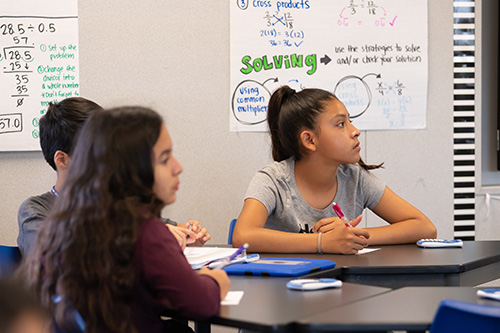
Why Pursue a Bilingual Authorization – Spanish?
Be fully equipped to teach in Spanish-speaking bilingual classrooms in California. According to the California Department of Education, the number of K-12 students who spoke a language other than English in their homes grew to more than 2.3 million in 2022, and 82% of these students speak Spanish. Efforts to better prepare students for 21st century careers and college recognize multilingualism as an essential skill. Educators who complete the bilingual authorization courses will develop skills to serve both children whose first language is Spanish and children who are learning Spanish as a second language in order to provide support in various settings such as public schools, private schools, international schools, tutoring, after-school programs and faith-based summer programs.
Credentialed educators will be eligible to add the Bilingual Authorization to their current California credential. Adding a bilingual authorization to your credential can advance your career by making you a highly desirable bilingual educator in the P-12 education system. Non-credentialed educators can receive an institution-sponsored certificate.
What Will I Study?
The three online courses in the bilingual authorization program emphasize the application of theory to practice by addressing cultural diversity, foundations of bilingual education, and describing various models of bilingual education, including dual language programs (Spanish immersion). The Biola bilingual authorization program will prepare you to become a bilingual teacher through coursework that integrates biblical principles.
Courses for Undergraduate Students
LEDU 390: Latina/o Diversity in a U.S. Context (3 credits)
This course focuses on the diversity of Latina/o culture and language in the context of the United States with particular attention to language variety, historical and sociocultural factors, immigration and settlement patterns, and the process of acculturation for individuals and families in California and the U.S. and the influence of these factors on effective pedagogical practices. Note(s): Special approval required; this course is taught in Spanish with readings in both Spanish and English; passage of this course with a grade of "B-" or higher will fulfill one of the major requirements for the Bilingual Authorization in Spanish.
Prerequisite(s): SPAN 300, SPAN 301, SPAN 310 or SPAN 311 or placement via assessment in the Modern Languages Department.
LEDU 391: Socio-historical Context for Bilingual Education - Spanish (3 credits)
This course focuses on providing future bilingual teachers with an understanding of the philosophical, theoretical, legal, and empirical foundations for bilingual education. Research on the cognitive advantages of bilingualism is considered. In light of the developments in the areas of bilingual theory and research, the course examines the different models of bilingual education and the types of instruction that are required within them. Language transferability as well as other issues related to daily language use (eg., interlanguage and translanguaging) within different models are addressed, as well as the wider contexts of school, home, community, and culture, with consideration for how these can impact student engagement and achievement. Note(s): This course is taught in both Spanish and English; passage of this course with a grade of "B-" or higher will fulfill one of the major requirements for the Bilingual Authorization in Spanish.
Prerequisite(s): LEDU 390 (may be taken concurrently).
LEDU 392: Bilingual Methodologies - Spanish (3 credits)
The course addresses linguistics, instruction, assessment, and curriculum by focusing on the interrelatedness of the four domains of language (listening, speaking, reading, and writing) as well as the structure, form, and function of the primary and target languages of bilingual students. The course prepares candidates to plan, develop, implement, and assess standards-aligned content instruction in both the primary and target languages. Through fieldwork, activities, readings, and assignments, participants will employ a variety of instructional and assessment strategies (formative and summative) to foster student language proficiency levels and higher-order thinking skills. Candidates will acquire knowledge of bilingual instructional models, instructional strategies, and the use of evaluation methods. Lecture/Lab Hours: A 20-hour fieldwork practicum component is required. Note(s): Special approval required; this course is taught in both Spanish and English; must submit Certificate of Clearance forms for fieldwork; passage of this course with a grade of "B-" or higher will fulfill one of the major requirements for the Bilingual Authorization in Spanish. Grade Mode: A.
Prerequisite(s): LEDU 390 (may be taken concurrently).
Additional Fee(s): Approximately $130 for livescan fees will be required.
Courses for Graduate Students
SEED 590: Latina/o Diversity in a U.S. Context (3 credits)
This course focuses on the diversity of Latina/o culture and language in the context of the United States with particular attention to language variety, historical and sociocultural factors, immigration and settlement patterns, and the process of acculturation for individuals and families in California and the U.S. and the influence of these factors on effective pedagogical practices. Note(s): Special approval required; this course is taught in Spanish with readings in both Spanish and English; passage of this course with a grade of "B-" or higher will fulfill one of the major requirements for the Bilingual Authorization in Spanish.
Prerequisite(s): SPAN 300, SPAN 301, SPAN 310 or SPAN 311 or placement via assessment in the Modern Languages Department.
SEED 591: Socio-historical Context for Bilingual Education - Spanish (3 credits)
This course focuses on providing future bilingual teachers with an understanding of the philosophical, theoretical, legal, and empirical foundations for bilingual education. Research on the cognitive advantages of bilingualism is considered. In light of the developments in the areas of bilingual theory and research, the course examines the different models of bilingual education and the types of instruction that are required within them. Language transferability as well as other issues related to daily language use (eg., interlanguage and translanguaging) within different models are addressed, as well as the wider contexts of school, home, community, and culture, with consideration for how these can impact student engagement and achievement. Note(s): This course is taught in both Spanish and English; passage of this course with a grade of "B-" or higher will fulfill one of the major requirements for the Bilingual Authorization in Spanish.
Prerequisite(s): SEED 590 (may be taken concurrently).
SEED 592: Bilingual Methodologies - Spanish (3 credits)
The course addresses linguistics, instruction, assessment, and curriculum by focusing on the interrelatedness of the four domains of language (listening, speaking, reading, and writing) as well as the structure, form, and function of the primary and target languages of bilingual students. The course prepares candidates to plan, develop, implement, and assess standards-aligned content instruction in both the primary and target languages. Through fieldwork, activities, readings, and assignments, participants will employ a variety of instructional and assessment strategies (formative and summative) to foster student language proficiency levels and higher-order thinking skills. Candidates will acquire knowledge of bilingual instructional models, instructional strategies, and the use of evaluation methods. Lecture/Lab Hours: A 20-hour fieldwork practicum component is required. Note(s): Special approval required; this course is taught in both Spanish and English; must submit Certificate of Clearance forms for fieldwork; passage of this course with a grade of "B-" or higher will fulfill one of the major requirements for the Bilingual Authorization in Spanish.
Prerequisite(s): SEED 590 (may be taken concurrently).
Additional Fee(s): Approximately $130 for livescan fees will be required.
Admissions Requirements
Current Biola Students
Current undergraduate or graduate students at Biola interested in taking the courses should consult with a School of Education academic advisor.
Special Student Status
Special Student Status is for graduate students who do not wish to pursue a degree-seeking program, but want to take classes to add the Bilingual Authorization to their credential or earn the institution-sponsored Certificate in Bilingual Education: Spanish Language, Culture and Methodology.
Applicants must have earned a regionally accredited bachelor’s degree.
Submit Biola University Graduate Application for Special Student Status.
Passage of Spanish language assessment through the Biola’s Modern Languages Department or passage of CSET: Spanish subtest 3 prior to registering for classes.
Hold a valid Certificate of Clearance or California Teaching Credential.

Completion Requirements
Please refer to the completion requirements for the Bilingual Authorization in Spanish:
Requirements for Institution Sponsored Certificate
- Passage of all coursework with a grade of “B-” or higher.
Requirements for the California Bilingual Authorization in Spanish
The following requirements must be met to apply for the California Bilingual Authorization in Spanish:
- Successful completion of Biola's Bilingual Authorization coursework with a grade of “B-” or higher, or passage of CSET Spanish subtests III, IV and V exams, or combination of coursework and exam.
- Spanish CSET Subtest III – Exam subtest required, no coursework available
- Spanish CSET IV – Met by LEDU 392 or SEED 592 with a 20 hour fieldwork practicum
- Spanish CSET V – Met by LEDU 390 or SEED 590 and LEDU 391 or SEED 591
- Hold a regionally accredited baccalaureate or higher degree.
- Passage of CSET Spanish Subtest III (meets the language assessment requirement).
- Possess the following:
- A valid California teaching credential, Speech-Language Pathology or Clinical or Rehabilitative Services Credential with a Special Class Authorization, School Nurse Services Credential with a Special Teaching Authorization in Health, Visiting Faculty Permit, Children’s Center Permit (excluding emergency), or Child Development Permit (excluding Assistant and Associate Permit) that authorizes the holder to provide instruction to pupils.
- A valid Language Development Specialist (LDS) Certificate, CLAD certificate, teaching credential with an English Learner Authorization or CLAD Emphasis.
